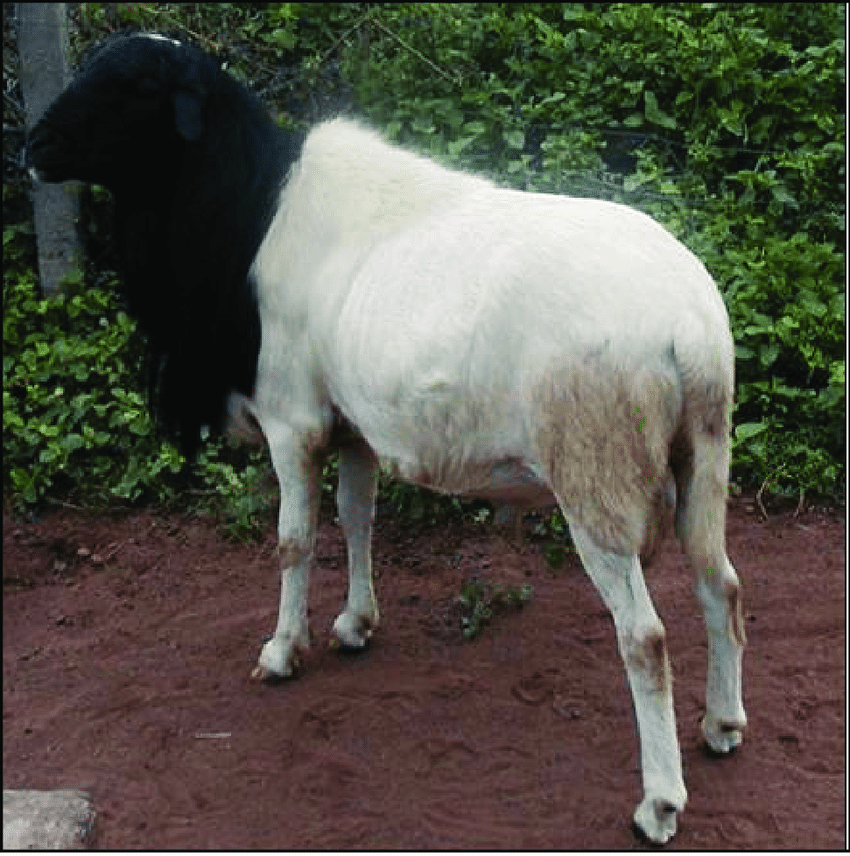 |
| Source: www.researchgate.net |
Djallonke are a hairy thin-tailed type of
sheep that originated in western Asia, and entered Africa through the Isthmus
of Suez and Bab el Mandeb. Until the third Millennium BC, the hairy thin-tailed
sheep was the only type of sheep on the African continent. Domestic sheep had
reached Egypt and other parts of North Africa by 5000 BC (Epstein 1971).
Djallonke sheep inhabit the area south of latitude 14 degrees N including the coastal
areas of west and central Africa. These include Nigeria, Dahomey, Ghana, Ivory
Coast, Guinea, Senegal, Cameroon, Gabon, Congo and Southern Mali. They are also
found in Angola and Botswana. In Nigeria it is called Nigerian dwarf; in Chad,
it is called Kirdi or Lakka, and in Cameroon, Fouta Djallon the Djallonke.
Djallonke sheep are used for meat.
They are generally white colored although
usually spotted with black or red colors. Tan with black belly is also common.
They have a wither height of 40-60 cm and a body weight of 20-30 kg; these
measurements indicate their characteristic small size. The horns of the rams
are crescent shaped with angular cross sections; the ewes are polled or have
tiny scars. Their eyes are large; their back is straight; their tail is fairly
thick at the root growing thinner till it terminates at the hocks. Male have a
throat ruff and mane.
Djallonke sheep are known for their
adaptation to the tropical hot and humid environment of West Africa, and are
considered tolerant to trypanosomosis infections.
Their population is estimated at 1.8
million in Ghana, half a million in Guinea and considerable number are found in
other Western African countries.
Source: Animal Genetics Training Resource
(AGTR).
